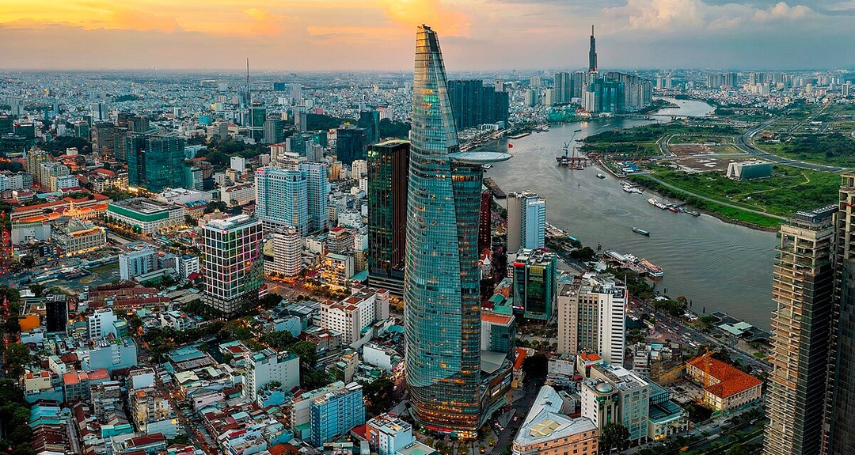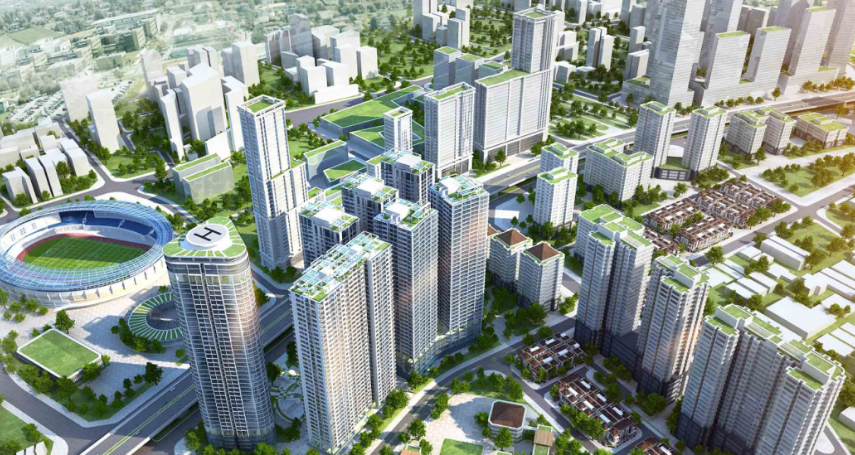Vietnam’s real estate market is witnessing robust growth and dynamism, driven by a surge in real estate M&A (mergers and acquisitions) activities. This positive trend reflects the strong investment appeal of the sector, especially among both domestic and foreign real estate enterprises. This article provides an in-depth analysis of the trends, driving forces, and impacts of M&A transactions in Vietnam’s current real estate landscape.

The growth trend of Vietnam’s real estate market
Vietnam’s real estate market has gone through various cycles of fluctuation, but recent years have been marked by a clear and steady recovery. Notably, real estate M&A activities have emerged as a highlight, with numerous large-scale transactions taking place in key economic areas.
The main factors behind this resurgence include the adjustment and improvement of the legal framework governing real estate—particularly with the introduction of the revised Land Law and Real Estate Business Law. These updates have strengthened investor confidence. M&A activities not only help real estate enterprises restructure and raise capital efficiently but also enable them to expand their investment scale faster than through traditional project development.
Real estate M&A – A key driver of growth
Real estate M&A has proven to be an essential strategic tool in the development of Vietnam’s property market. Both domestic developers and foreign investors—especially from Malaysia, Singapore, South Korea, and Japan—are actively engaging in acquisitions and mergers to quickly gain market share and accelerate investment projects.
Major M&A deals valued at hundreds of millions of U.S. dollars demonstrate strong determination and optimism among investors. These transactions help real estate companies expand their land banks, develop new housing projects, premium apartment complexes, and integrated commercial-service centers, all of which contribute significantly to the overall growth of the industry.

Domestic real estate enterprises and their role in M&A
Not only foreign investors but also Vietnamese real estate corporations are leaving a strong mark on the M&A landscape. Large conglomerates such as Sun Group and Sunshine Group have continuously expanded their land portfolios through purchases and transfers, developing large-scale projects that meet the rising demands of the market.
The participation of Vietnamese developers in M&A deals has activated new financial resources, enhanced project development capabilities, and fostered healthy competition—ultimately improving product quality across the market. This plays a crucial role in ensuring the sustainable growth of the real estate sector.
Real estate investment potential in Vietnam
Vietnam holds numerous competitive advantages in real estate investment, thanks to its stable economic growth, young population, rapid urbanization, and expanding middle class. Housing demand in major cities like Ho Chi Minh City and Hanoi remains high, while supply continues to be limited.
Rental yields and medium- to long-term property value appreciation potential are highly attractive, drawing significant interest from both domestic and international investors. These factors form the foundation for Vietnam’s real estate market appeal and drive the increasingly dynamic wave of M&A activities.

Notable M&A deals and their market impact
Several large-scale M&A transactions have provided a strong boost to Vietnam’s real estate market. The acquisition of vast land banks and the transfer of major projects in prime locations have been highly valued by foreign investors, promising long-term returns.
More importantly, M&A activities have enhanced transparency, professionalism, and management efficiency across the real estate sector, helping to improve the overall investment environment. The growing scale and diversity of M&A transactions are laying the groundwork for a sustainable market development.
Vietnam’s real estate market is undergoing a period of vibrant expansion, with M&A activities playing a pivotal role in driving recovery and growth. Developers and investors alike are seizing this momentum to accelerate their expansion and strengthen competitiveness.
With supportive legal reforms, outstanding investment potential, and the strong participation of major investors, Vietnam’s real estate market is forecast to maintain its upward trajectory—continuing to shine as one of the most attractive investment destinations in the region in the coming years.
You may also be interested in:
- Sharp rise in social housing prices: Causes and current solutions
- 5 Potential Areas for Leasing Business Premises in Ho Chi Minh City
- Business Premises – A Key to Brand Success
(Source: reatimes.vn)




